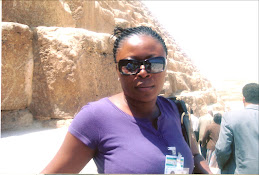THE PRESS CONFERENCE (more widely known now as a news
conference) is a common device used by an organisation or
individual in search of publicity.
The ploy has some advantages for both sides. For the promoter
it means telling the story only once, and creates a
potentially newsworthy event. Critics say many are non-events.
But a news conference also has drawbacks for the active news
gatherer. All the competition is there also. So, in theory,
everyone will come away with the same story. Or will they?
Determined and alert reporters do not sit back, fortified by
free drinks and dreaming of a free meal to come, swallowing
everything else that has been outlined.
Always remember, you are a reporter and not a mere message
carrier. What you are hearing may be only a rehash of old
news, or an attempt to gain free publicity.
A diligent reporter, assigned to a news conference on an
unfamiliar topic, first checks with his paper's library or
his colleagues or contacts for background information.
Clever organisers of news conferences often supply written
material (sometimes called a press kit) but this may not
necessarily contain the story which you will file at the end
of the exercise.
If time is paramount, try to slip away to a quiet corner
before the conference begins and read and consider the
contents of any handouts supplied.
Mentally discard the puff (publicity for a product, plan or
individual) and sift through for facts. Try to imagine some
of the possible effects of what you have been told. Read
between the lines. What hasn't been said?
For instance, could any potential hardship be caused by
building that new airport or road? What has happened to the
new appointee's predecessor? Why this change of policy at
this time?
Be primed, so that you are ready for any sort of avoidance or
playing down of the points.
The verbal submissions with which many news conferences begin
may stick closely to the information also supplied in a
brief. In which case, merely keep a watchful eye that any
speaker does not deviate from the prepared draft.
If you have not been given a press kit on arrival (and it is
always wise to ask if one is to be distributed) it means
careful note-taking.
Normally, after the formal stage, the assembled press
representatives are invited to ask questions. This can well
be the most productive part of the occasion, providing that
the conference principals are reasonably open and frank in
their replies.
But informative replies are not only the result of good
questions. Good questions themselves are the fruit of
preparation, thought and awareness.
In particular, sensitive areas will only be successfully
explored and admissions gained by the right questions at the
right time.
Even if you have no such questions, listen carefully to the
replies to those colleagues who, perhaps because of inside
knowledge and background, are able to frame testing queries.
Make careful notes if you sense someone is 'on' to something
extra, even if you aren't fully conversant with the topic.
Closer reference later to the written material, or checks at
the office, or supplementary questioning yourself, can bring
the whole thing into perspective.
Try to join in the questioning if there seems to be a genuine
area of interest on which the organisers seem unwilling to
elaborate. Keep the pot boiling, to give the minds of others
time to tick over.
Put your questions politely, but pointedly. Don't be overawed
by authority on the platform. Don't let a responder get away
with half-answers. Most of all, don't be the one to introduce
an irrelevant issue, letting the wriggling victim off the hook.
In other words, reporters should 'hunt in packs' until what
you collectively and instinctively deem to be a newsworthy
aspect has been exhausted.
From an aggressive newsperson's point of view, all this has
one drawback. What you get, everyone else also gets. So, if
you hold a trump card, don't play it at the conference
proper.
Use it by seeking out the major speaker when the conference
is breaking up, or by a phone call later.
News conferences are a legitimate and handy way of
distributing information and they should be responded to as a
matter of newspaper routine. But never let your reporting
skills at that event descend to the routine.
If you feel nothing useful has come out of a news conference,
don't waste time writing up simply to prove you turned up.
Check that your news editor agrees with your judgement --
then use the time saved to chase real news.
SOURCE: Notes, IIJ-G57 1990.
Subscribe to:
Post Comments (Atom)












No comments:
Post a Comment